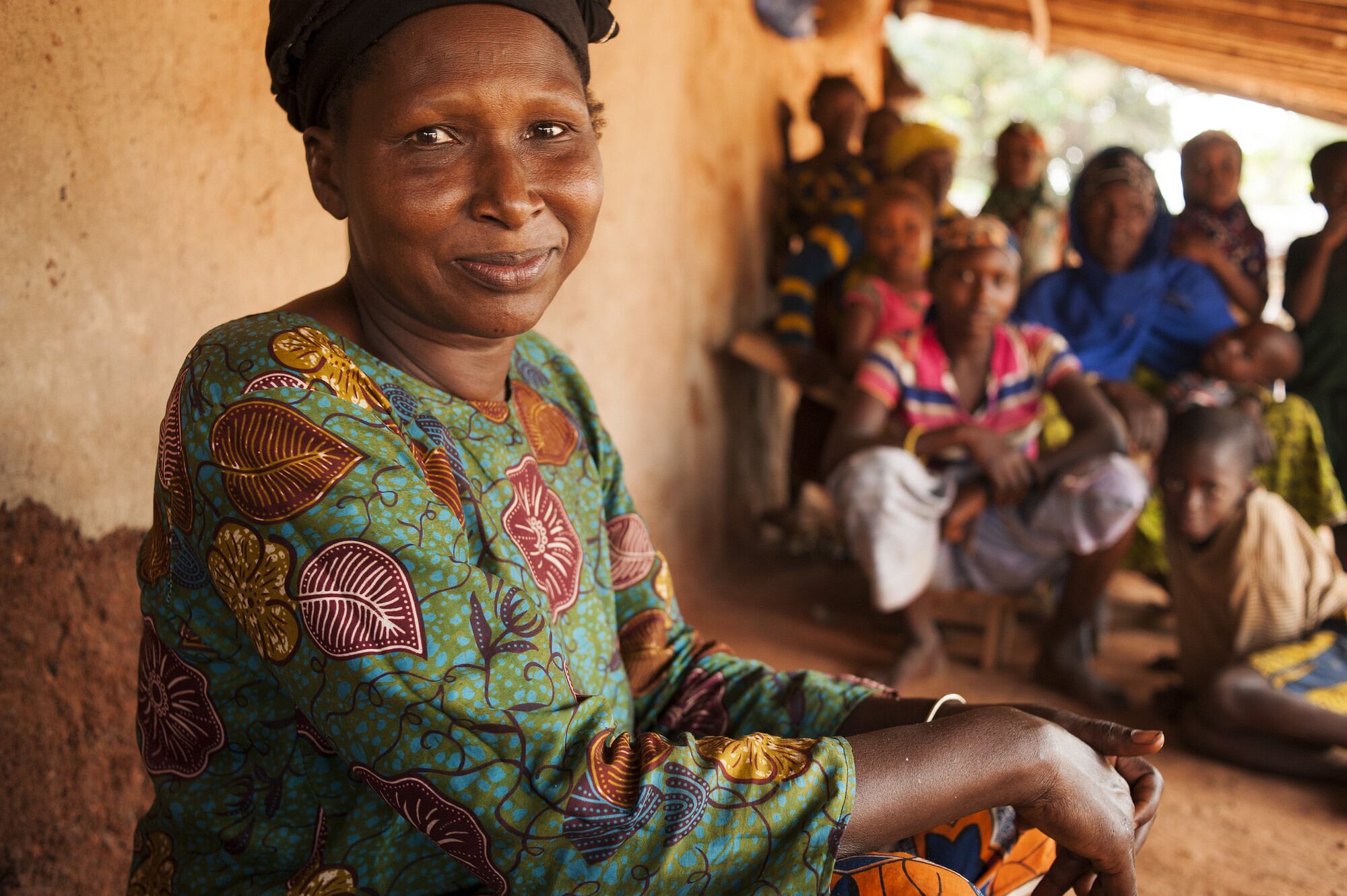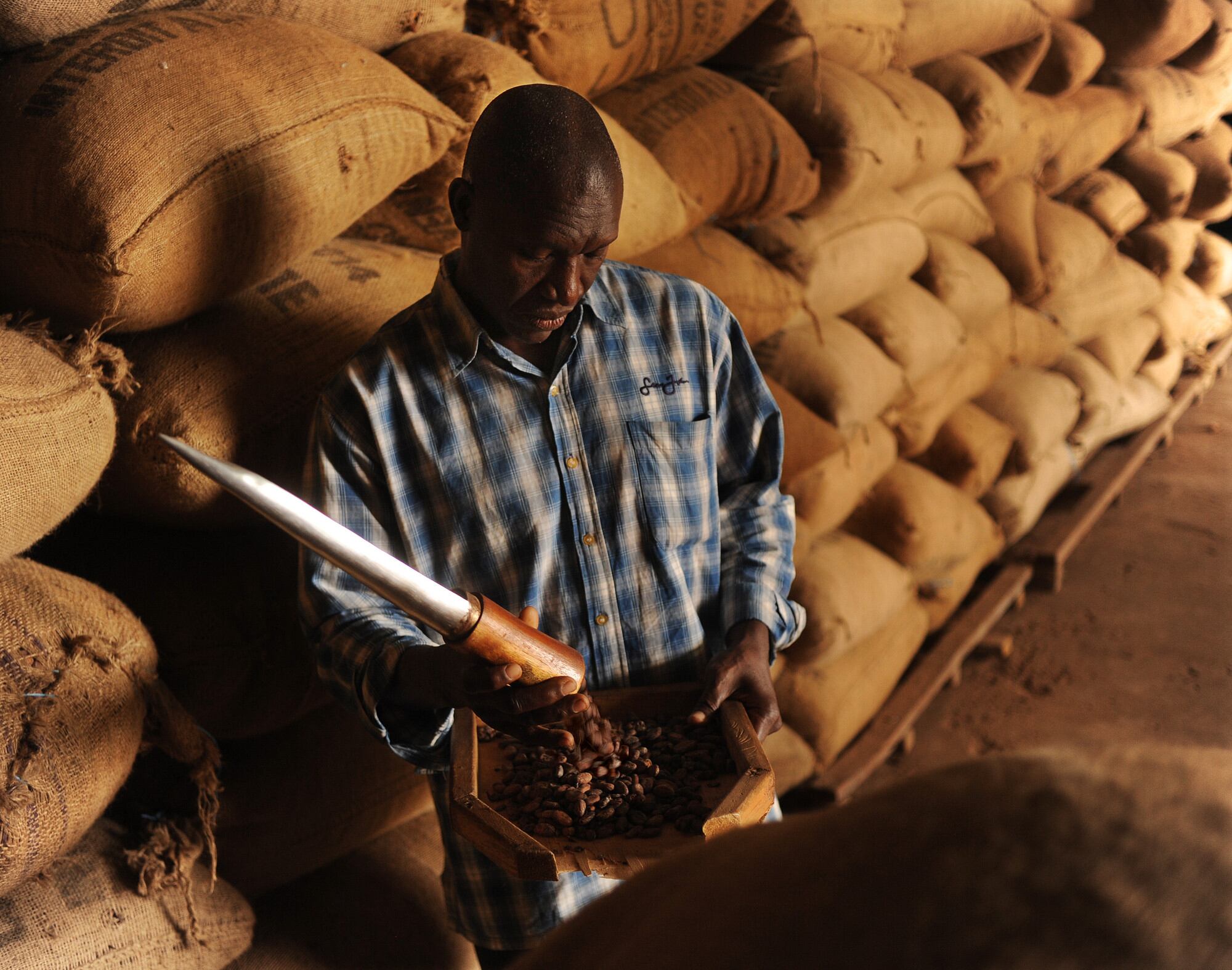ECOOKIM, a 2,800-member co-op in the world’s premier cocoa growing nation, says chocolate manufacturers and cocoa processors must enter into longer term deals with cocoa traders.
It says this will allow cocoa traders to forge lengthier agreements with farmers, allowing farming cooperatives to boost productivity and invest in social projects.
Three-year minimum contracts
Speaking through a translator, Aminata Bamba, sustainable development manager at ECOOKIM, told ConfectioneryNews that contracts between cooperatives and traders should be a minimum of three years.
“If you have a one-year contract, you do a one year contract, but for us to make a development plan and realize projects for the future, we need a long-term commitment. We can’t deliver in one year what our members need,” said Bamba. “It’s not obvious to us why the partners struggle to make a long-term commitment.”

Enabling productivity investments
She said three-year minimum contracts would prove the chocolate industry is committed to helping farmers and would allow cooperatives to invest in boosting yields, cocoa quality and in unlawful child labor prevention projects such as school-building.
“The first element that is the most important is productivity because if there is no cocoa there is not chocolate.”
ECOOKIM farmers have been working on a geo-traceability system that they believe is important for the chocolate industry, but Bamba said the project required investment.
A report by Fairtrade last year found that farmers chose to spend 36% of their Fairtrade premium on productivity and quality improvement projects – far above Fairtrade International’s suggested 25% minimum.

Is industry investment being felt on the ground?
Major chocolate players - such as Mondelēz International, Mars and Nestlé - and cocoa processors, including Barry Callebaut and Cargill, have upped investments in cocoa sustainability projects in recent years.
We asked Bamba if the effects were felt by farmers and cooperatives. “There are certain things that have improved but it’s not sufficient,” she said. “It’s obvious on the ground that it’s still not enough…There are still lots of challenges.”
She continued: “We teach good agricultural practice and when farmers put this into practice, the yield goes up. So obviously in turn their revenue goes up. But it’s not enough and we need more.”
According to Oxfam, most cocoa farmers live below the poverty line, earning under $2 a day.
A consortium of NGOs, including Oxfam and the VOICE Network, said in the recently published 2015 Cocoa Barometer that the chocolate industry was fixated on boosting cocoa productivity and missed the core of the problem: extreme poverty.
Where are the buyers for Fairtrade cocoa?
Bamba said certified premiums helped ECOOKIM farmers earn improved incomes, but members were still struggling to find buyers for certified produce.
Missing out on premiums
Over half of cocoa grown on certified farms may be sold as conventional cocoa without a premium price for farmers. In 2012, just 35%* of certified cocoa by the big three certifiers, UTZ Certified, Rainforest Alliance and Fairtrade was sold as certified.
Seven of ECOOKIM’s farmer organizations are Fairtrade-certified, but the cooperative only sells around 30% volumes on Fairtrade terms. Her organization can produce 30,000 metric tons (MT) of cocoa a year, but it only has contracts in Fairtrade for 8,500 MT.
Many major companies such as Mars, Ferrero and Hershey have committed to fully Fairtrade-certified cocoa by 2020. How can it be that farmers and cooperatives struggle to find a buyer for certified produce?
“It seems there are many more actors in the chocolate industry than just the ones who have made the major commitments – maybe it’s for them to make some commitments and look at sourcing certified cocoa,” said Bamba.

Up premiums for certified cocoa, says co-op
Around 16% of global chocolate sold in 2015 is expected to use cocoa from a certified farm, according to the 2015 Cocoa Barometer. That’s up from 2% in 2009, yet the vast majority of chocolate is still sold using uncertified cocoa, for which farmers are paid no premium.
Bamba also urged the chocolate industry to pay higher premiums for certified cocoa. She said most companies purchased Fairtrade cocoa for the guaranteed minimum premium of $200 per MT. “When a partner comes and sees the reality of the ground that’s often when they decided to look at a negotiated higher premium,” she said.
[*Each certifier produces its own figures, which does not account for farms that are double or triple certified. This means the total could be higher than 35%.]
